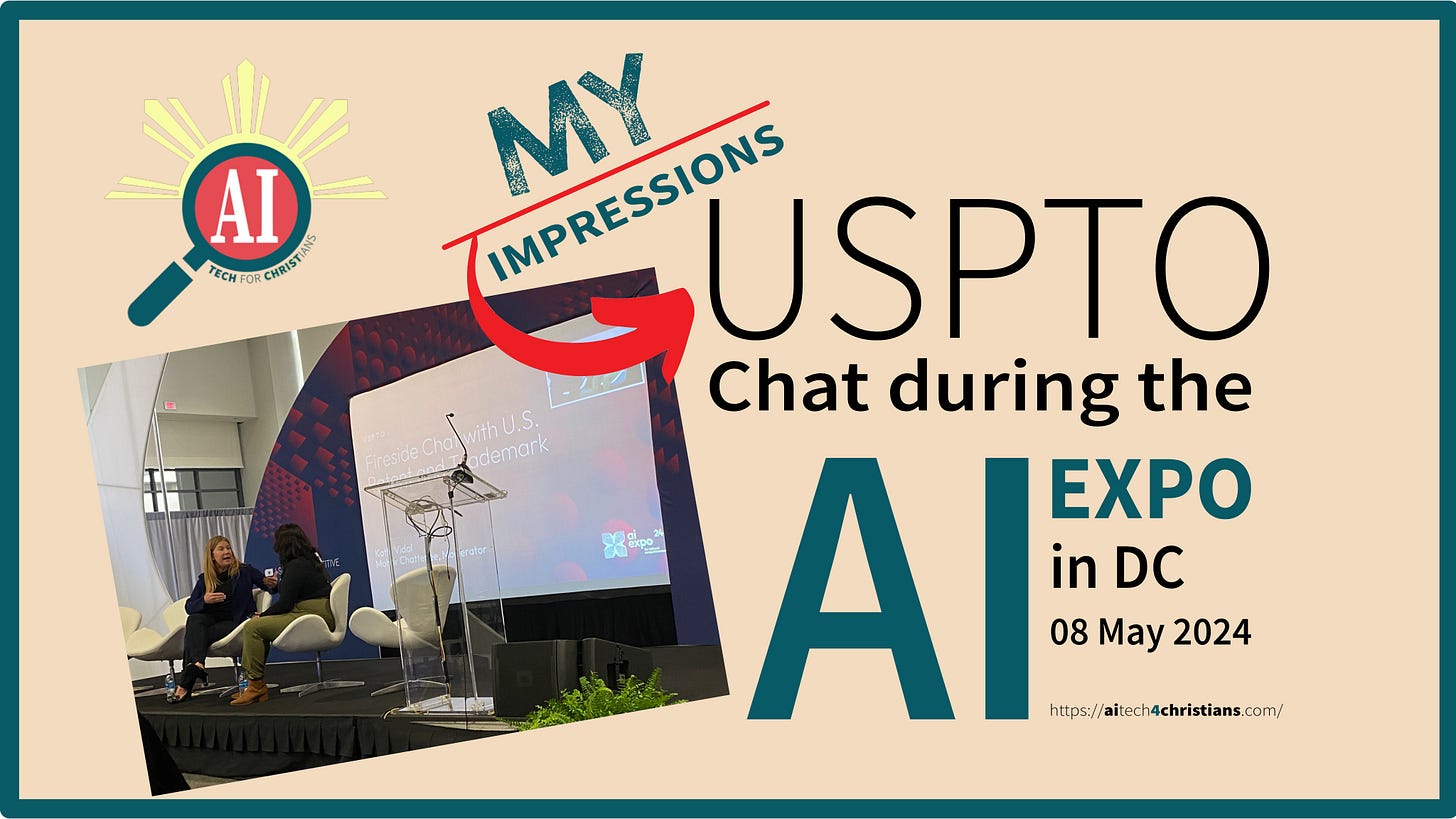USPTO on Artificial Intelligence during the AI Expo in DC: Impressions
Trademark and Patent Office Balancing Different Components
There were simultaneous seminars during the AI Expo for National Competitiveness in Washington DC on May 8th, 2024. I lingered to listen at some but stayed to absorb a “fireside chat” between a moderator and US Patent and Trade Office Director Kathi Vidal. I am very interested in the intellectual property issues involving artificial intelligence because I happen to file for a trademark and encountered some obstacles. Trademarks involve only limited phrases and/or images. With the advent of generative artificial intelligence, it involves a lot more. Here are my personal impressions while listening to the moderated chat:
USPTO is aware of the growth and use of artificial intelligence and recognize the importance of leveraging its use within the organization and by the people applying for patents and trademarks.
They are concerned about equity and availability of AI to ordinary people and businesses.
They want to publish guidelines as soon as possible but acknowledges the importance of collaborating with other countries about it.
When I went the the USPTO booth to get more detailed information, they gave me a card with a QR Code to the website shown below.
I went to the resources and found the Guidance on Use of Artificial Intelligence-Based Tools in Practice Before the United States Patent and Trademark Office which was published in the Federal Register. One significant quote is:
This guidance is not intended to provide an exhaustive list of possible rules, policies, or issues that may arise with use of AI in matters before the USPTO. As noted above, the USPTO has separately addressed the use of AI before the office when AI is used as part of the inventive process. The USPTO continues to engage with stakeholders through the AI/ET Partnership to seek the public's views on various policy issues that uniquely affect the AI/ET community. The USPTO will continue to study considerations raised by the use of AI within the IP community, including impacts on the integrity and accessibility of the IP system.
As they wrote, it is not an “exhaustive list of possible rules." In other words, policies are evolving. Still, it is worthwhile to be aware of what USPTO is doing to promote, protect and enhance the use of artificial intelligence.
Thou Shall Not Steal
Generative artificial intelligence go through tremendous amount of data and creates something new based on what we asked or prompted it. Now, who owns the generative content? Is the AI user/prompter? Is the content creator where AI based part of its research a part owner? One court case might get a legal answer. On December 2023, New York Times filed a case against OpenAI and Microsoft for copyright infringement. This case might influence policies in the future. As Christians, we know that we should not steal. With AI, a lot of gray areas are emerging. Even then, let us ask for wisdom to know what to do especially when we use AI for commercial purposes. Then, do due diligence to make sure we are not infringing any intellectual properties. Next, I will share practical ways to use generative AI responsibly especially for commercial use like self-publication through Amazon’s Kindle.


